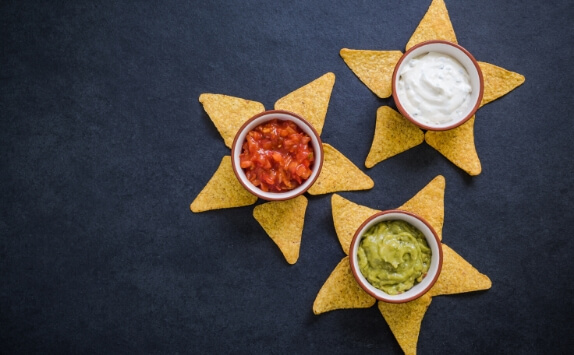
Sodium Reduction with Flavours
The world’s favourite and most effective flavour enhancer is salt. All other flavour enhancers such as Monosodium Glutamate, The Ribonucleotide (I+G) are highly effective but only in conjunction with salt. What we refer to as salt is Sodium Chloride (NaCl).
It is a highly stable molecule since it is the perfect match between the most reactive Group 1 element Sodium. It means that sodium has a spare electron in its’ outer shell. Chlorine has one electron missing, and so they pair up to complete each others’ orbital shells. There are many salts, but we tend to mean sodium chloride when talking about salt, just like we mean ethanol when we talk about alcohol.
Why should we consider reducing salt in processed food?
Salt is linked to hypertension (high blood pressure). It puts the heart under greater stress than it already has to deal with. After all, the average heart beats 40 million times a year without stopping or resting, year in year out, and in the vast majority of cases without fault or falter. It is truly an amazing piece of design that has not changed essentially for over 300 million years. Therefore it stands to reason that looking after it and making its’ job easier is a good idea.
However, one of the tragedies of the human condition is that we like all the things that are bad for us such as salt, fat, sugar, sitting around, no exercise etc., all things that are bad for your cardiovascular system. It is not the salt that is the problem; it is sodium that is the cause. This is one of the reasons why MSG is being replaced because it too has a sodium content as well as triggering autoimmune conditions such as gluten allergy; which is becoming more and more common in today’s world.
However, high percentile salt usage is typical in high fat and carbohydrate snacks such as potato chips. The pleasant mouthfeel and taste of these products lead to overconsumption and all the obesity hypertension effects after long term usage. The reduction of salt is already underway. Many snack manufacturers have been gradually reducing the salt level over many years. At the beginning of the century, typical salt levels in a packet of potato chips were 7-8%. That does not seem too high, but when you consider seawater is 4% salt, it suddenly seems shocking.The problem with this is there is only a certain amount of salt that can be removed before people stop enjoying the product.
This is where the flavour companies come in. On your tongue, you have thousands of taste receptors, some meant for salt, some for sugar, some for acidity, some for bitterness. We can trick these receptors into working without salt being present and stay active for a little longer, with these molecules and a blend of other chloride salts such as Potassium chloride. However, Potassium Chloride has a metallic taste. If used in large quantity, the consumer spots it, as the consumer has consumed and loved salt virtually from the day they were born.
At Keva, we blend natural extracts and molecules to cause this effect so that it becomes possible to reduce the inclusion of sodium derived salt. Each flavour is tailor-made for the individual application.
ArrayKeva has an extensive flavour shop for various food and beverage applications, besides a team of expert flavourists and food technologists for creating custom flavours and matches. To partner with us, contact Keva today.
- Pinned
- Recent


 Taste of Traditions
Taste of Traditions17 May 2024






 Energizing Trends of the Energy Drink Market
Energizing Trends of the Energy Drink Market31 May 2024
Blog Archive
-
2024
June (2)
May (2)
April (1)
March (1)
January (1)
2023
2021
-
September (1)
August (1)
2020
-
October (1)
September (1)
August (1)
March (2)
February (2)
January (3)
2019
-
November (2)
- Process Flavours
October (1)
July (1)
May (1)
March (2)
February (2)
January (1)
2018
September (1)
July (1)
May (1)
April (2)
March (2)
February (2)
January (2)
2017
November (2)
October (2)
Disclaimer
The statements, views, thoughts and opinions expressed on blog or social media are those of the author and do not necessarily reflect the official policy or position of Keva Flavours or its parent organisation. The company does not take any responsibility for the views of the author.


